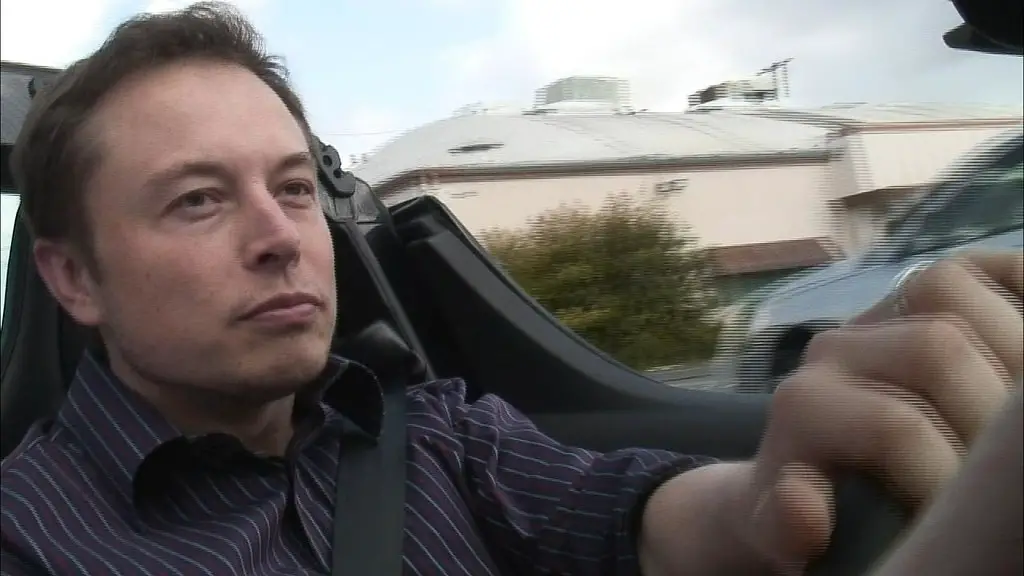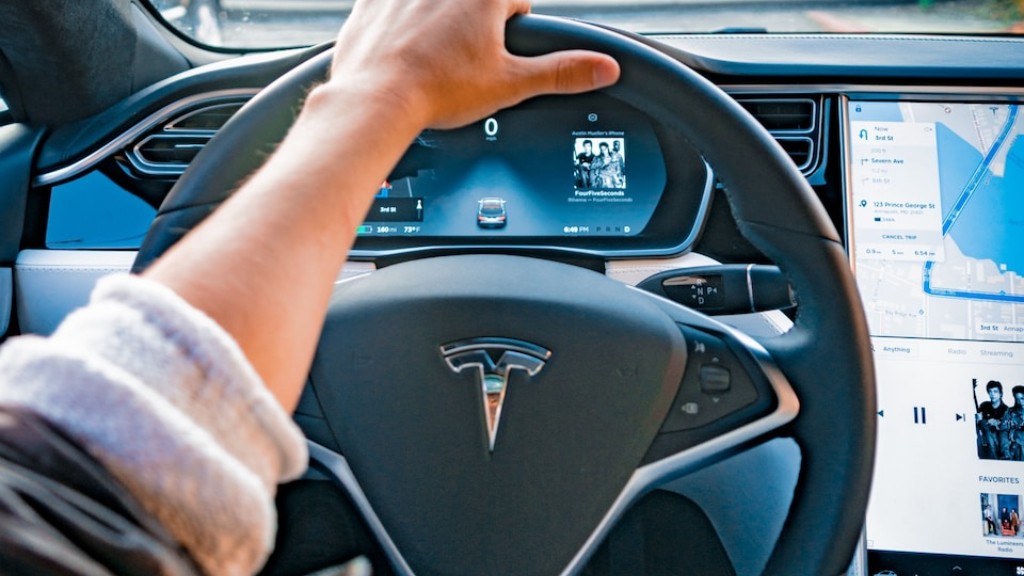Introduction
In recent years, Elon Musk has been heralded as a visionary leader, which has only seemed to increase as his many ambitious projects have come to fruition. As his fame has risen, so too has the notion that there exists a “cult of personality” around the tech entrepreneur. From the perspective of some observers, Musk’s passion and public advocacy for his companies, such as Tesla and SpaceX, has made him the object of a kind of hero worship. But does this supposedly cult-like adoration represent a significant phenomenon, or is it more a part of the public’s natural excitement for grand visions?
Elements of a Cult
At a basic level, a cult revolves around a charismatic leader. Typically, this leader is believed to have some sort of special insight or expertise, and followers of the cult unquestioningly embrace the leader’s message. We can examine whether this exists in Elon Musk’s case by examining the behavior of his supporters. Do they simply admire him, or do they slavishly adhere to all he says and values, regardless of evidence to the contrary?
When it comes to supporters of Elon Musk, there is certainly an arguably fanatical devotion. Many of the entrepreneur’s followers zealously defend him from criticism and eagerly await his decisions. This is most exemplified by the large community of Tesla owners, many of whom congregate online and engage in conversations about their cars and the company’s progress. The media, too, has noticed this phenomenon, with articles referring to Musk’s fame as “reaching cult-like heights.”
Is that a Bad Thing?
Elon Musk’s followers and supporters undeniably have a keen enthusiasm, but that does not necessarily make them a cult. Many, in fact, argue that the excitement around the tech elite is actually a positive development. With the world rapidly changing and technologies advancing, there is a need for visionaries who are willing to take incredible risks towards grand goals. Effectively, Musk and other such figures are the catalysts for the growth of nascent technologies that could revolutionise our world.
Moreover, the level of adoration for Musk does not seem particularly extreme. When one looks objectively, there is not much evidence that the tech entrepreneur’s supporters ignore criticisms and blindly follow his actions. Instead, they seem to be more excited about his potential, and rally around his endeavours in a similar way to how people support their favourite sports teams.
Harnessing The Excitement For Good
There is, however, a degree of risk involved with a cult of personality. Overly enthusiastic followers can be an echo chamber that amplifies the leader’s values and views, and this can ultimately become somewhat insular and unthinking. Fear of criticism and dissent often prevents a rigorous analysis of the ideas being pursued, and this could limit innovation and progress. To prevent this, both Musk and his supporters need to be aware of the risks that focus on a single individual can entail.
A better model for progress might be for societies to embrace progress for progress’s sake, rather than the person driving it. Elon Musk is a prime example of an individual who has achieved great things, but he is not the only one. A greater focus on nurturing these kinds of visionaries in a more open and balanced way could lead to advancements that benefit all members of society, and not just a closed-minded subsection of them.
Tesla in the Media
The high level of public engagement with Elon Musk and Tesla has placed the company at the heart of a highly visible media narrative. Musk has regularly used the media to make grand proclamations and declarations, such as the world’s transition to electric vehicles and the building of a “hyperloop.” Despite the controversies that have come with these announcements, they have served to maintain Musk’s celebrity status and have generated a high level of interest in Tesla’s products.
Addition to this has been the narrative around Tesla’s apparent struggles. Throughout the company’s history, Tesla has courted controversy and criticism over its production targets, profitability, and business strategies. But the media’s coverage of the firm has often been framed in a sympathetic light , in which Musk is positioned as a hero battling against the odds. As a result, the company has become more popular than it may have otherwise had it not been for the public’s admiration of its leader.
Musk’s Legacy
Elon Musk’s view of himself as an individual capable of changing the world has certainly led to a degree of hero worship amongst some. But it has also had the benefit of galvanizing innovation and progress in many areas of technology. Musk’s championing of electric vehicles, space exploration and artificial intelligence has been met with a high level of public interest and investment.
Musk’s legacy, then, is that of a leader who pushed boundaries and dared to dream big. Despite the controversies and doubts around his projects, Musk has carved out a niche in the tech world that he is likely to occupy for some time yet. And while it may be difficult to quantify the genuine extent of the “cult or personality” surrounding the tech mogul, his influence on the public’s imagination is undeniable.
Criticisms of Musk’s Idealism
Though Elon Musk is often celebrated as an innovative and risk-taking individual, some may take issue with the way in which he is portrayed in the media. His grand proclamations about new technologies and methods of production often lack the practicality and skeptical approach that may be required to achieve realistic results. In particular, some believe that Musk has grossly underestimated the difficulties and complexities of transitioning to electric vehicles.
Not only this, but there is a risk that his idealism comes with an extreme level of risk-taking that offsets any potential benefits that these advancements may bring. Proponents of civil liberties, for example, are concerned that some of Musk’s ideas, such as the Hyperloop, may lead to privacy violations or a totalitarian surveillance state. For many, such idealistic dreams could come with a serious cost.
The Real Impact of Musk’s Ventures
Though the impact of Elon Musk’s projects may be difficult to direct evaluate and quantify, many believe that he has been successful in his stated goals. Tesla, for instance, has pushed the boundaries of electric vehicle production, inspiring other automakers to follow suit. Meanwhile, SpaceX’s reusable rockets have significantly reduced the duration of space travel and enabled more frequent missions.
These accomplishments have not come without a cost. Many have raised objections to government subsidies received by Tesla, while SpaceX’s rapid expansion has sometimes been met with criticism from competitors. Perhaps most seriously of all, both companies have faced numerous legal difficulties, with Musk himself having faced a number of charges and investigations.
The Corporate Culture of Tesla and SpaceX
The corporate cultures at Tesla and SpaceX have been subject to a great deal of speculation in recent years, with some seeing Elon Musk as a despot-like ruler, while others view him more as an inspirational, visionary leader. What is true, however, is that both companies have faced difficulties, particularly in terms of their management and labour practices.
In Tesla’s case, there have been numerous reports of employees being overworked and underpaid, sometimes with little to no recognition for their efforts. They have also faced criticism for their labour practices and their lack of transparency in dealing with worker complaints. SpaceX, too, has been accused of favouring certain employees over others and for not taking into account the opinions of its staff.
The Role of Government Regulation
The high-profile successes and controversies of Tesla and SpaceX have brought the role of government regulation into the spotlight. Questions have been raised as to whether these companies have pushed the boundaries of safety in their pursuit of ambitious goals, and whether sufficient governmental protocols have been in place to protect the public from any potential risks.
In the US, both Tesla and SpaceX have received considerable political support, but the former has faced questions over its long-term sustainability. There have also been concerns that Musk’s companies have been able to circumvent regulatory compliance by leveraging their relationships with political actors. Such issues, many believe, should be rectified if the public is to truly benefit from Elon Musk’s legacy.
Conclusion
In the wake of Elon Musk’s success come questions about potential cult-like behaviors from his supporters, as well as criticisms of his idealism and risk-taking. However, while it is difficult to quantify the exact impact of Musk’s ventures, his influence on the public consciousness his undeniable. His grand visions have unleashed energy and creativity rarely seen in our modern societies and have set a benchmark for future innovators. Therefore, rather than labeling Musk’s supporters and admirers as a “cult,” perhaps a more open and collaborative attitude is needed. Only then can the potential of Musk’s ideas truly be realized.


